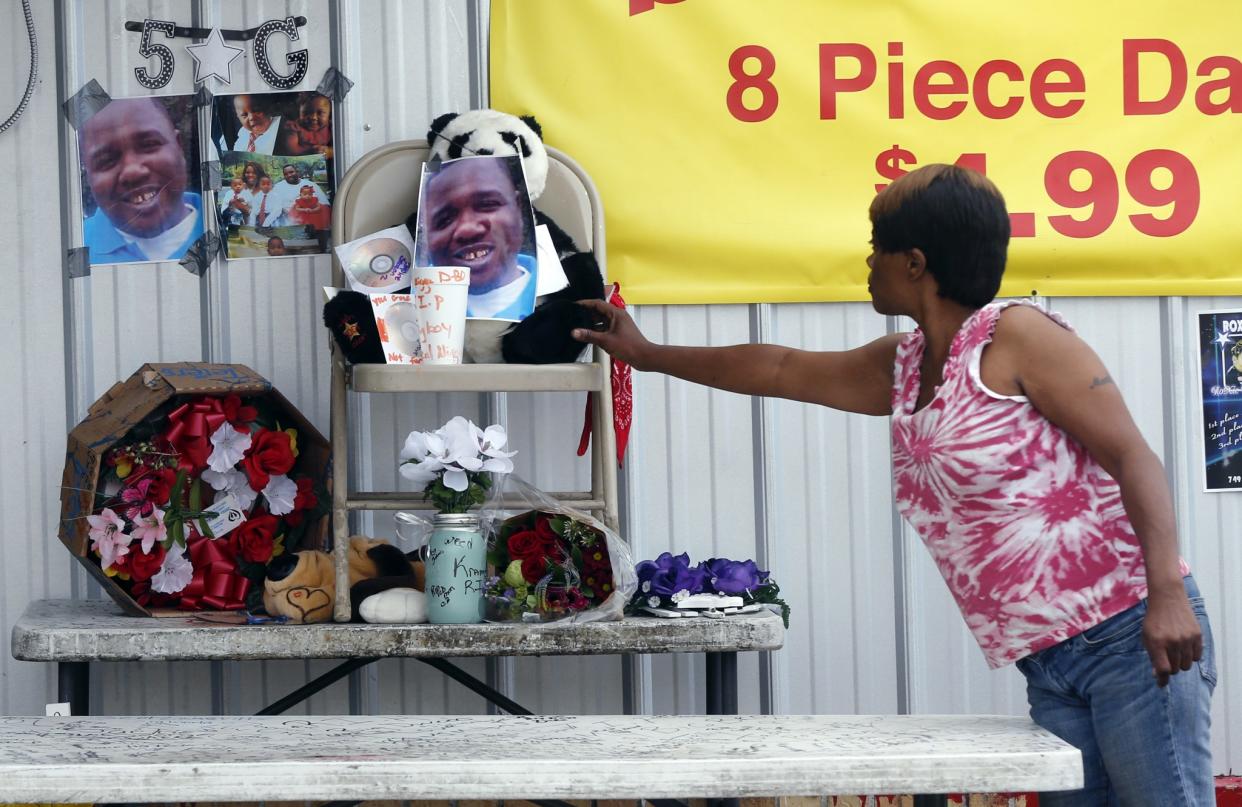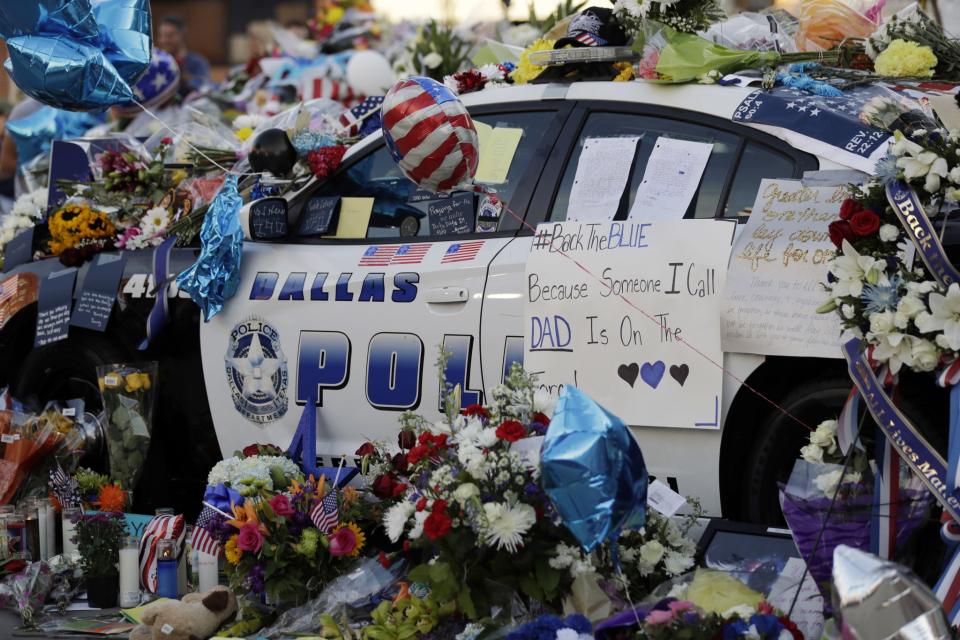16 places that shaped the 2016 election: Baton Rouge, La.

By Nov. 9, the votes will have been cast and counted, there will be a winner and a loser, and the country will begin a slow return to normal. Historians will have their say on the outcome, but all of us who have lived through this election will carry away indelible memories of a shocking year in American history: of a handful of ordinary people, swept up in the rush of history; of a series of moments on which the fate of the nation seemed, at least briefly, to turn; and of places on the map that became symbols of a divided nation. As we count down to Election Day, Yahoo News has identified 16 unforgettable people, moments and places.
It started, as these things so often do, with a call to police about a man with a gun. The man was Alton Sterling, 37, who was peddling CDs outside a Baton Rouge, La., convenience store on July 5 when, according to media accounts, he brushed off a panhandler, who then called 911 to say Sterling had threatened him.
You already know what happened, because it was captured on a particularly graphic cellphone video. Two cops responded, there was a scuffle in which Sterling was knocked to the ground and six shots were fired, killing him.
Hillary Clinton called the shooting a “tragedy,” and said it showed that “something is profoundly wrong” in the country.
Sterling’s death came one day before Philandro Castile, 32, was stopped for a broken taillight while driving in a suburb of St. Paul, Minn., with his fiancée, Diamond Reynolds, in the passenger seat, and her 4-year-old daughter in the back. You already know what happened next, because the aftermath was live-streamed on Facebook: Castile, who, by Reynolds’ account, informed the officer he was (legally) armed, wound up being shot to death.
Donald Trump called the Sterling and Castile killings “a terrible, disgusting performance that I saw.” Asked by Bill O’Reilly if they were symptoms “of a larger problem with American police” he responded, “Look, it could be.”
Castile was shot was one day before Micah Johnson, 25, took a rifle to a Black Lives Matter demonstration in Dallas and began picking off the police who were guarding the marchers, shooting five of them dead and wounding a civilian, before he was killed in a standoff with authorities using a remote-controlled robot carrying a bomb.
In an interview with CNN, Mrs. Clinton praised the Dallas officers and called the attack “an absolutely horrific event.”

That was a week and a half before Gavin Long, 29, took a walk down a Baton Rouge highway, armed with a rifle, and began shooting at officers when they showed up to investigate, killing three and wounding three others before he was shot and killed by a police sniper.
Donald Trump decided this was an occasion to attack Clinton, proclaiming himself “the law-and-order candidate” contrasted to his “weak, ineffective, pandering” opponent.
That was two months before Terence Crutcher was shot dead by a Tulsa, Okla., policewoman as he was walking toward his car which had been stopped in the middle of the road, which was four days before Keith Lamont Scott was shot and killed by officers in the parking lot outside his apartment in Charlotte, N.C., leading to several nights of angry protests in which a civilian was killed.
That was a week before Alfred Olango, 38, who was said to be acting erratically, was shot to death after he pulled an electronic cigarette from his pocket and pointed it at officers in El Cajon, Calif. — By Jerry Adler
Alton Sterling killed by police in Baton Rouge, La.
Protests and memorials following the July police killing of an African-American man in Louisiana. >>>
Baton Rouge police shooting of Alton Sterling ‘disturbing to say the least,’ governor says
A video of a Baton Rouge police officer shooting a suspect in the chest at point-blank range is “disturbing to say the least,” Louisiana Gov. John Bel Edwards said on July 6. The governor added that the U.S. Department of Justice had accepted his request to lead the investigation, adding he demanded that the probe be conducted “thoroughly, impartially, and professionally.” >>>
Baton Rouge bands together, reeling from back-to-back tragedies
How a community tried to move past a summer of tragedy, from the shooting of Alton Sterling, ensuing deadly ambush on law enforcement and floodwaters that washed away communities and killed over a dozen people. >>>
Baton Rouge rescuer thanks New Orleans volunteers after deadly floods
Rescuers helped more than 20,000 people evacuate their homes after torrential rainfall caused waterways to overflow and wreak havoc on the Baton Rouge area. New Orleanians, who struggled through the tragedy of Hurricane Katrina in 2005, were eager to help their neighbors in the state’s capital city, about an hour and a half drive northwest. >>>
Hillary's statement on the shooting in Baton Rouge. pic.twitter.com/4a0MVF3025
— Hillary Clinton (@HillaryClinton) July 17, 2016
President Obama should have gone to Louisiana days ago, instead of golfing. Too little, too late!
— Donald J. Trump (@realDonaldTrump) August 23, 2016







